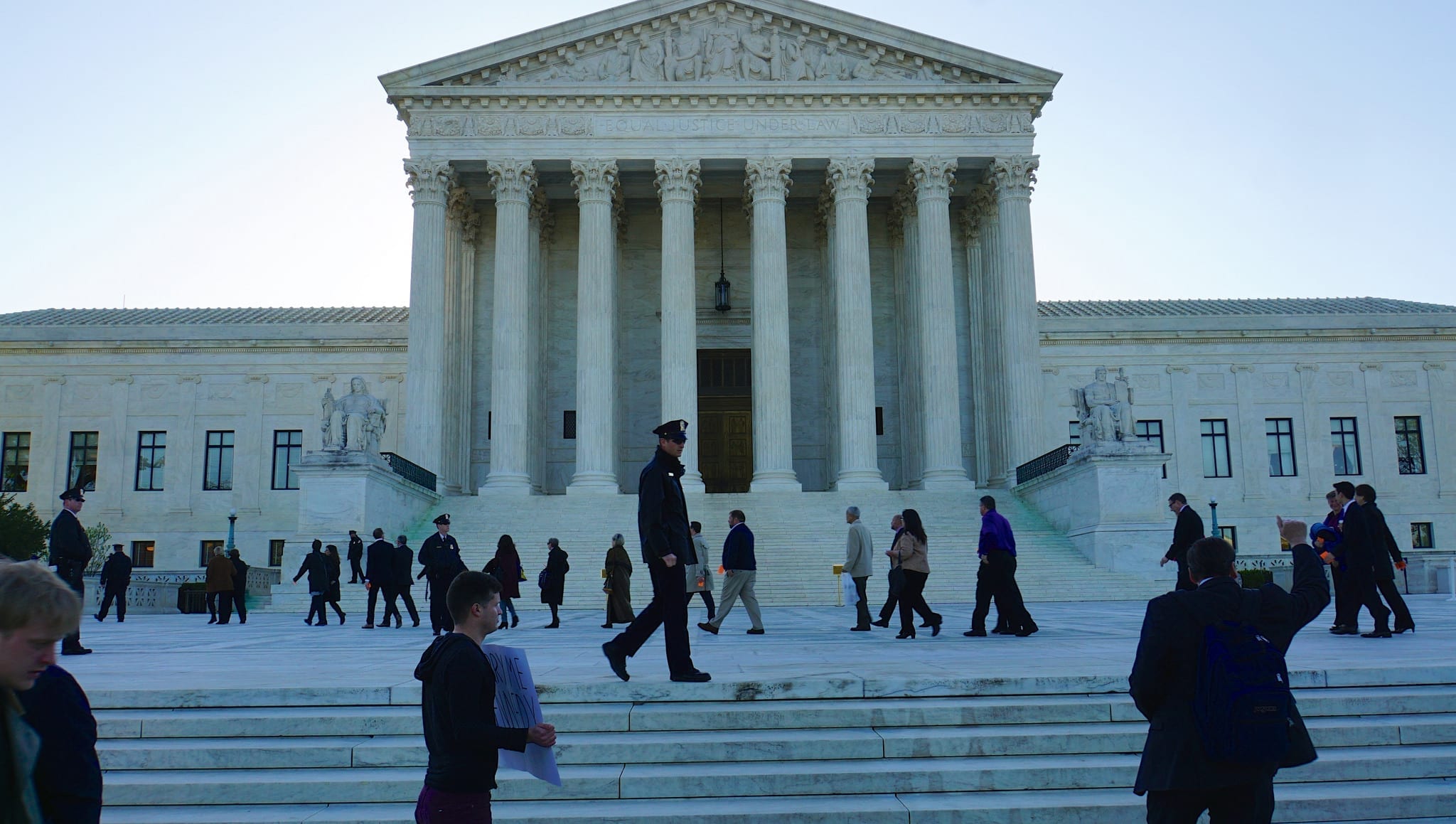Arbitrary, excessive punishments result from lack of clarity under some laws.
(WASHINGTON) – The American Tort Reform Association (ATRA) filed a friend of the court brief with the U.S. Supreme Court in Johnson & Johnson v. State of California requesting the Court’s review and to place rational boundaries on the unpredictable and near limitless imposition of “per violation” civil penalties.
In the case at hand, the California trial court found that Johnson & Johnson subsidiary, Ethicon, committed 153,351 Unfair Competition Law (UCL) violations and 121,844 False Advertising Law (FAL) violations. The trial court reached this finding based in part on counting each printed piece of marketing material that it estimated was ordered to California, and each brochure requested to be sent to California – regardless of whether such materials were actually delivered, read, relied-upon, or resulted in any demonstrable harm.
The trial court judge, recognizing the wide discretion permitted under California law, then imposed a penalty of $1,250 for each violation, resulting in $343,993,750 in civil penalties against Ethicon.
ATRA’s brief argues that the Supreme Court should provide a constitutional backstop when the lack of clarity under unfair or deceptive acts and practices laws leads to arbitrary and exorbitant punishment.
The brief further states that the Court should provide consistency between safeguards governing arbitrary and excessive punishment in other areas.
“Proportionality between punishment and harm is key to addressing the stark unpredictability of punitive damage awards and evaluating excessiveness,” ATRA President Tiger Joyce said.
Background on Johnson & Johnson v. State of California
In 2016, the California Attorney General filed an enforcement action against Ethicon, a subsidiary of Johnson & Johnson, alleging that it violated California’s Unfair Competition Law (UCL) and False Advertising Law (FAL) by distributing untrue or misleading communications about its pelvic mesh products.
At trial, California surgeon-witnesses who implanted mesh explained they knew about relevant risks and that the statements were not deceptive. The trial court nevertheless held that Ethicon’s pelvic mesh marketing materials and disclosures directed at pelvic surgeons were UCL and FAL violations. It found that the materials contained false and misleading statements that did not disclose the full scope and severity of mesh-specific risks. The court concluded this was likely to deceive doctors. It relied principally on testimony from doctors who never implanted mesh, or who did so outside the state of California.
The trial court then purported to determine how many times Ethicon violated the UCL and FAL. Neither statute defines what constitutes a single violation or offers any guidance as to how a court should make that decision. Further, violation counting does not require any showing of harm to individual consumers. As the trial court acknowledged, it is simply “up to the [c]ourt to determine what constitutes a violation for the purpose of calculating penalties.”
Here, the trial court counted each printed piece of marketing that it estimated was ordered to California, and each brochure requested to be sent to California – regardless of whether such materials were actually delivered, read, relied-upon, or resulted in harm. For example, the court found 52,176 UCL and FAL violations based on a forensic accountant’s “estimate” of print marketing materials shipped into the state from 2008 to 2011. The accountant simply extrapolated one sales representative’s ordering patterns to all other California sales representatives (26 in total), assuming that all representatives ordered materials at the same monthly pace. The court also determined that Ethicon shipped 8,108 print marketing materials to California between January 2012 and February 2017, based on Ethicon’s discovery responses. It concluded that every single piece of material constituted both a UCL violation and an FAL violation – regardless of whether the marketing materials were read by consumers or had even reached their destinations.
In total, the court found that Ethicon committed 153,351 UCL violations and 121,844 FAL violations. As for the penalty per violation, the court recognized that it had wide discretion under California law to impose a penalty “up to $2,500.” Reasoning that a significant penalty was appropriate, the trial court judge imposed a penalty of $1,250 for each violation – with no differentiation among the type or severity of violations. The trial court thus imposed $343,993,750 in civil penalties against Ethicon.

The trial court denied plaintiffs’ request for injunctive relief. It highlighted a letter from over 70 physicians lauding defendants’ mesh products and stating their grounds for supporting the right to access them and expressed concern that an injunction might prompt Ethicon to withdraw its products from California.
On appeal in April 2022, the California Court of Appeals largely affirmed the trial court’s decision. It concluded, however, that the trial court erred in finding Ethicon liable for certain oral marketing communications when there was insufficient evidence regarding such communications. Accordingly, the Court of Appeals revised the total violations to 134,386 UCL violations and 107,244 FAL violations, and a corresponding $302,037,500 in civil penalties.
In a disappointing order issued in July, the California Supreme Court denied Ethicon’s petition for review. Ethicon is appealing the decision to the U.S. Supreme Court and filed its petition in mid-November.
About the American Tort Reform Association (ATRA)
Founded in 1986, ATRA is a nonpartisan, nonprofit organization and is the nation’s first organization dedicated exclusively to reforming the civil justice system through education and legislative enactment. ATRA acts as a nationwide network of state-based liability reform coalitions backed by 142,000 grassroots supporters. ATRA works to bring greater fairness, predictability and efficiency to America’s civil justice system. Those efforts have resulted in the enactment of state and federal laws that make the system fairer for everyone.


Join the conversation!